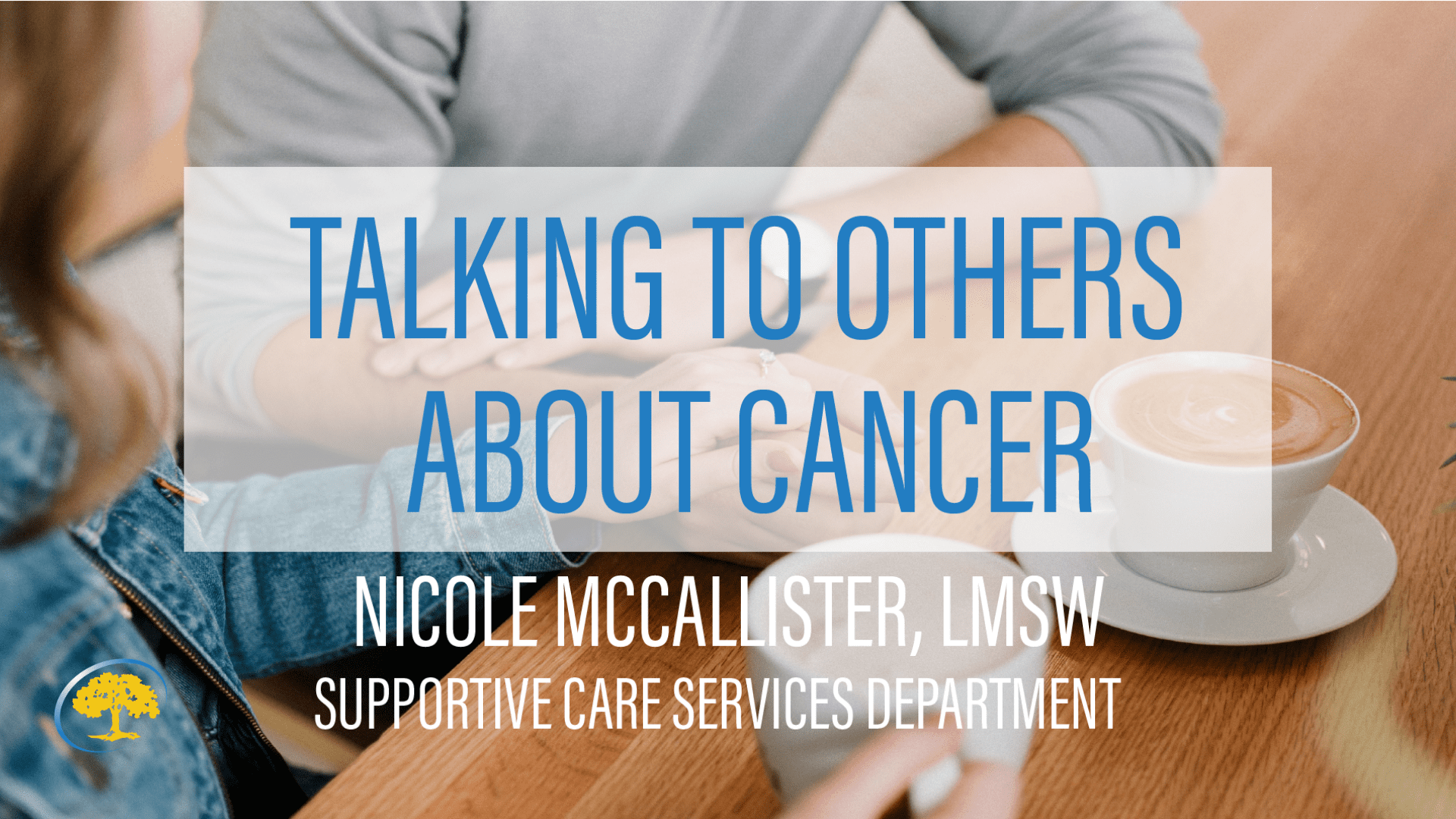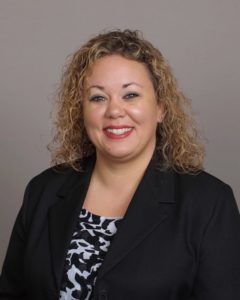
Posted 5 years ago
Talking to Others About Cancer

Talking to Others About Cancer
Finding out you have cancer can be stressful and emotional. The information you receive from initial visits with your medical team can be overwhelming. Telling others you have it can cause additional anxiety and concern as well.
What do you say? How will they react? What if they start crying? When and who to tell is your personal decision. The perfect time to share with others is when you are ready. There is no right or wrong way to do it.
However, we do have a few tips for you that will hopefully make the conversation easier.
- Understanding the basics of your diagnosis and the treatment plan can be important as people are likely to ask questions. Being prepared to answer what type of cancer you have, what kind of treatment your medical team is suggesting and if the doctor is indicating anything in regards to prognosis. This information could make the conversation flow smoother.
- You will not know everything about your cancer diagnosis at the beginning and it is your choice to decide what you want to say
- Make a list of the people you want to share your diagnosis with. Then decide who you want to tell in person, by phone or even in a written communication
- Consider writing the facts you want to share on an index card or a flyer so you can be consistent in telling others and if people re-ask you, you can easily sent them your notes to prevent a repeated conversation
- Set boundaries for the topics you do not want to discuss or how you will keep others updated
- Be honest and share how you feel
- Those you share with could become emotional and upset. However, do not feel obligated to comfort those you share this with. Making yourself a priority at this time should be one of your goals
- Let others help you when they offer as you will most likely need it. Be specific about what assistance you do need
- Use caution when talking to people from your employment. Share only what you need to and feel comfortable with. Consider sending an email with a brief statement
- Do not be afraid to tell people you just want them to listen and not give you advice. It is your journey and you are driving this bus!
- If people tell you to be positive or cheer up, you can let them know you are allowed to have good days and bad.
Talking to Children
Talking to children can seem like more of a challenge. Remember that children are observant and have a keen sense of knowing when something is going on in the family. They have a tendency to find out things on their own so hearing it from you is always best. Here are some things to consider when talking to children.
- Consider the age of the child. Telling a toddler is very different than a teenager
- Use simple descriptions and explanations. Tell them what type, where it is on the body and what treatment you are going to do
- Talk to them about things that may change such as hair loss and appetite
- Let them know cancer is not contagious
- Maintain schedules, routines and traditions if at all possible
- Identify and use consistent substitute caregivers/babysitters. Even have them come around when you are there to increase comfort levels
- Encourage them not to seek out information on the internet without your advice. The internet is not always factual. Have them write down questions or concerns, discuss with you or have the doctor answer the questions during your next visit.
If you are having difficulties talking about your cancer with others or need advice on how to share the information with family and friends, Social Workers at Ironwood are here to support and guide you. Feel free to reach out to Supportive Care Services Department at 480-314-6660.
About Nicole McCallister, LMSW

Nicole McCallister
Nicole McCallister is a Licensed Master Social Worker. Nicole received her Master’s in Social Work from Arizona State University in August 2017. She received her Bachelor’s in Criminal Justice Studies in April 2003 from Grand Valley State University in Grand Rapids, MI.
About Ironwood Cancer & Research Centers
Ironwood Cancer & Research Centers (ICRC) is the largest multi-specialty oncology network in the Greater Metro Phoenix area. They have over 100 medical providers, a robust Integrative Services program, and a dedicated clinical research department. Ironwood Cancer & Research Centers has 15 valley locations and five comprehensive cancer care centers that offer a multi-disciplinary approach for expedited personalized patient care. For more information, please visit www.ironwoodcrc.com.

